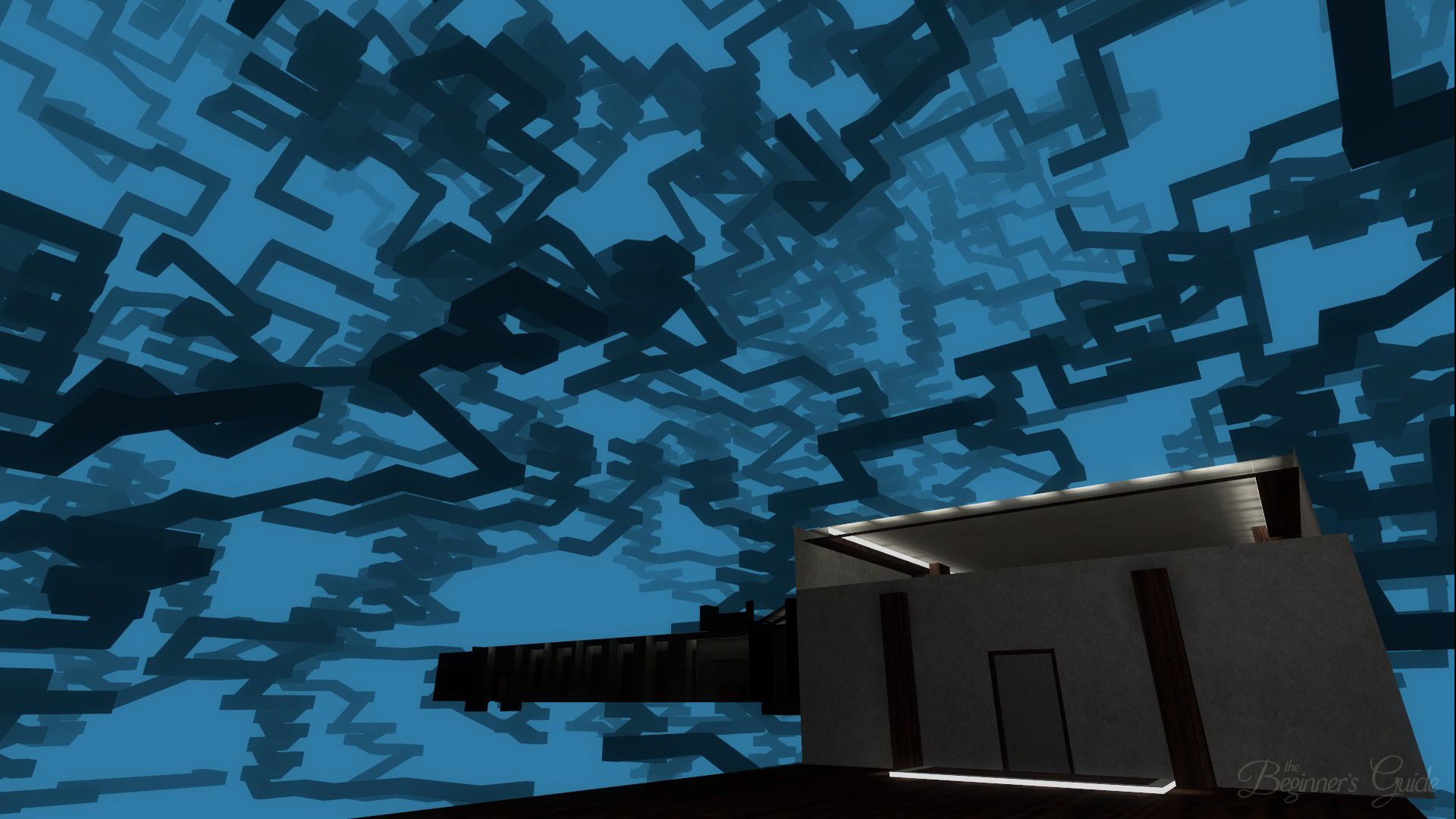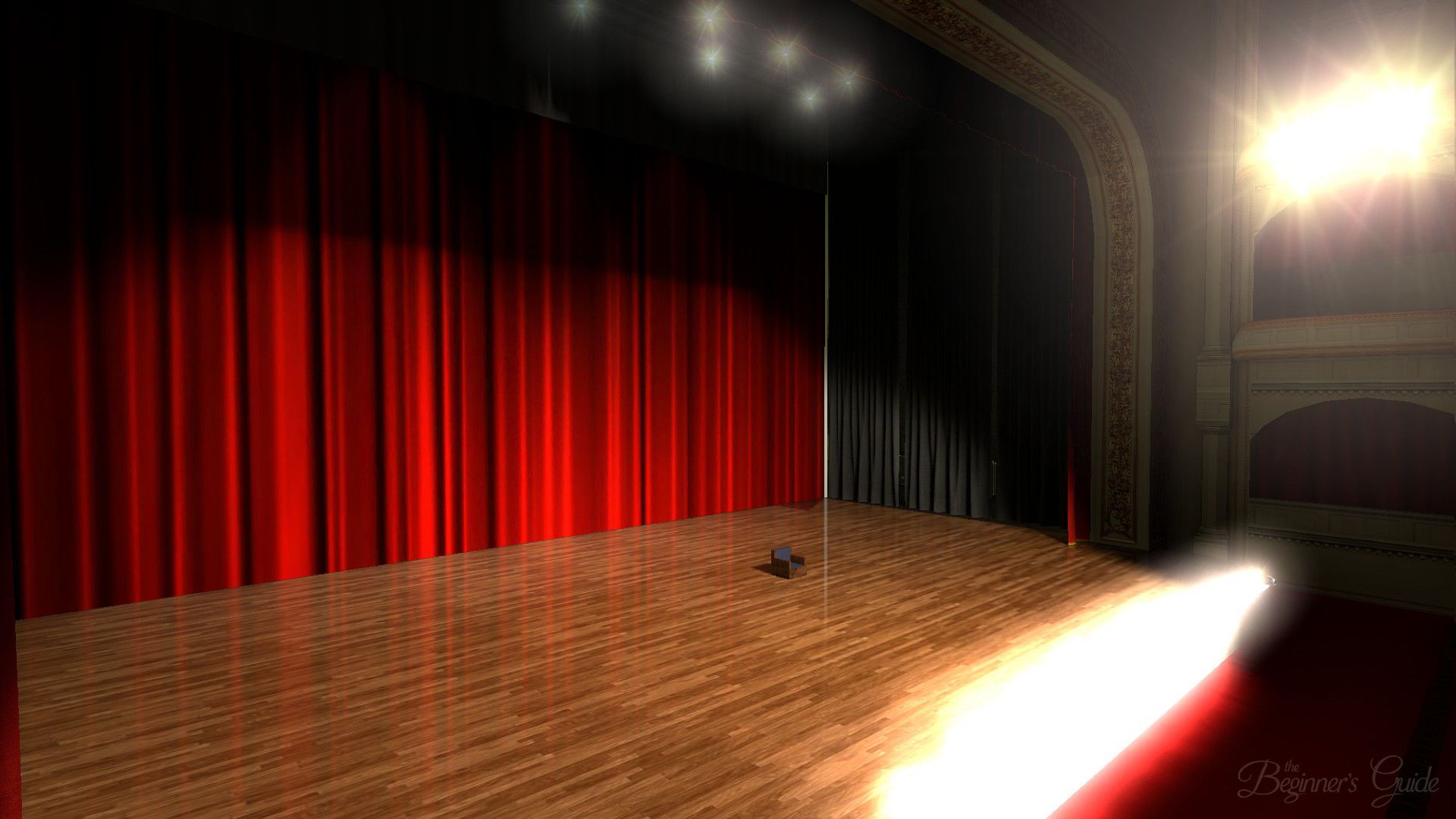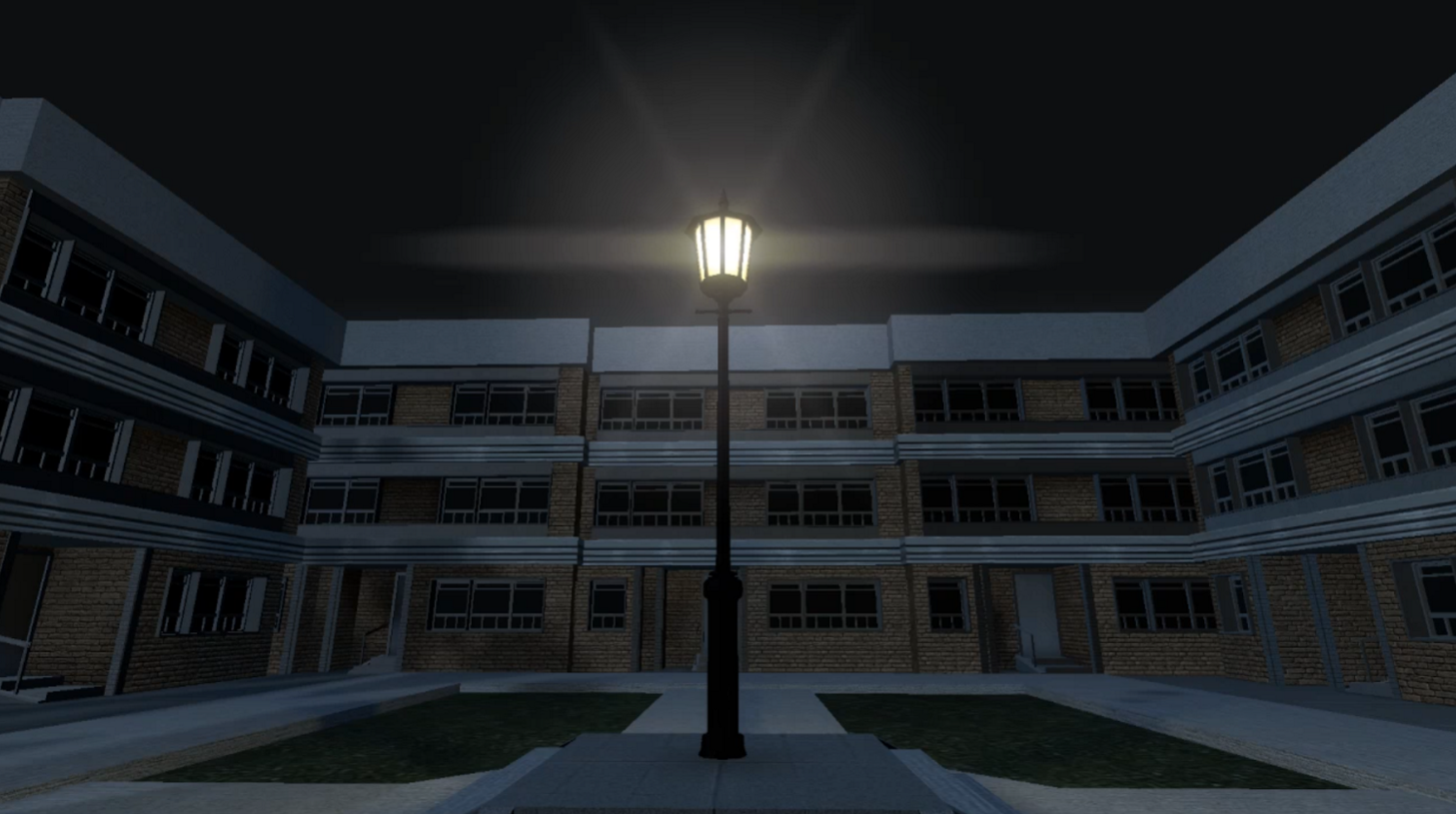The Beginner's Guide: Video Games and The Death of Author
Can we know a creator through their work?

The Beginners Guide is an interactive narrative video game from 2015 where the game's creator, Davey Wreden, plays a fictionalized version of himself (also named Davey), in-game. This fictionalized Davey introduces himself before settling us into our first of many 'incomplete' games (as he calls them). These games were created by a friend named 'CODA.' He tells us a bit about 'CODA' and how CODA's work has served as an inspiration for the kinds of work he wants to make.
I could study this game as Wreden's sophomoric response to the success and fame of his previous work, The Stanley Parable. I could tell you how a coda is a musical term representing the end of a movement and that much of the game is about nodding at the past and moving forward. But there is so much more to say about The Beginner's Guide, and indeed, there is more than an article's worth of themes to unpack. This narrative piece is, in many ways, about the artist and the artistic process as well as authorship versus readership. However, it also tackles themes of mental health, friendship, and personal change without hesitation. The Beginner's Guide juggles puzzles in the air like a series of colorful questions as they loop, descend, and rise again.
What is a sign? What exists in the space between the doors? Can we know a creator through their works? What is the relationship between player and creator? What is the relationship between art and artist? And is there such a thing as art for art's sake?

It's difficult to put this game into words; in fact, any attempt at doing so places me in the same box as our ubiquitous and unpredictable antagonistic, Davey. But, that is, in part, what is so metatextual and clever about this work. It has safeguarded itself against criticism and analysis by being a critical piece about criticism and analysis. As I investigate the composition and thrust my interpretations at the reader, am I saying more about myself than the game? Should we just end this essay here?
The Death of the Author
"The idea is seductive that I can know you through your work."
Davey
After Davey's introduction, he presents his central thesis: We will use CODA's games to see if we can learn about the type of person CODA is. From the onset, Wreden offers us a complex debate on literary criticism. Can we use traditional criticism by treating the artist as a source when analyzing a game? Can we learn more about a piece when we try to discern what an author intended? Or are we testing Roland Barthes' The Death of the Author' as applied to games? Can we remove the author as the authority on a game? What happens when we interject ourselves into a narrative as the authority?
"This is what I like about all of CODA's games. Not that they're all fascinating as games, but they are all going to give us access to their creator. I want us to see past the games themselves, I want to know who this human being really is, and that's exactly what we're going to do here."
Davey
At the center of Davey's error exists the idea that "We should talk about his (CODA's) games for what they are rather than what they're not." There is something fundamentally wrong here, and like the film, Birdman expertly says in its opening shot:
"A thing is a thing, not what is said of that thing."
Davey's theory that you can know someone through their work is fundamentally flawed. You can't unpack a real, three-dimensional person and their ins and outs by examining their work.
He asks himself: "Was I a failure for not understanding this? Not like everything needs a solution." Yes, Davey, you did fail to understand, and maybe it is true that not everything needs or even has a solution. While you sought to analyze everything, you failed to recognize that we cannot see what is actually there. We instead see what we think is there. Our subjective nature obscures objective reality. There's no way around it. The simple truth that "Maybe he just likes making prisons" is foreign to Davey and perhaps many other critics. A thing remains regardless. A 'thing' is true to its objective self, no matter what anyone says of that 'thing'.
The attempts at analysis using CODA as the source are downright incorrect, and even our main character, Davey, realizes this at the game's end. When after Davey betrays CODA's trust, CODA constructs a cold and distant 'feeling' game tailored just for him. Upon which Davey remarks, "I don't know this person."

Davey, unfortunately, swings from one extreme to the next. Instead of accepting his analysis of CODA as a failure, he tests just how deep the slumber of a dead author is. At the narrative turn, we learn that Davey has been lying and manipulating us to form a particular portrayal of CODA the entire time. Every game we have seen has been tampered with by Davey to support his theory. Whether we skip a maze, speed up time, open our eyes, remove walls or embellish the scene with something more. Davey is constantly modifying the original intent of CODA's games. Davey goes as far as to assume authorship of the creations himself.
"If I made his work my own, I'd be happy. I needed to be someone other than me."
Davey
At the end of the game, we see a series of messages displayed like art pieces on a wall in a museum-like room. Statements directed at Davey like, "Would you simply let them be what they are" and devastatingly, "Stop adding lamp posts to my games." The truth is revealed, and everything we have seen has been an orchestration. Ultimately Davey Wreden doesn't conclude which form of criticism is right or wrong and is instead rather critical of both conditions.

But, at the end of the day, isn't every analysis an orchestration? As I sit here writing this article, I can't help but think I am no better than Davey. My analysis of Davey Wreden's game may be as subjectively incorrect as his character's own analysis. Although I'm not sure if Wreden would admit to his intent, but I do know that perhaps it doesn't matter.
